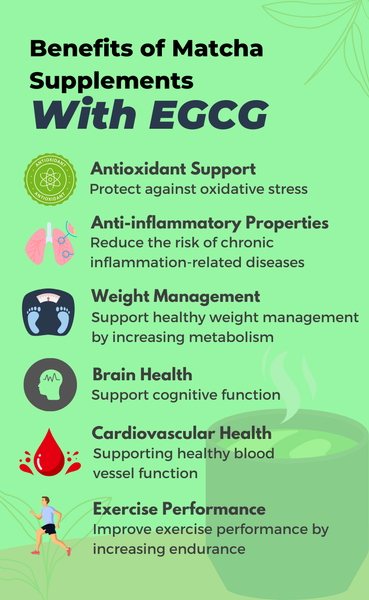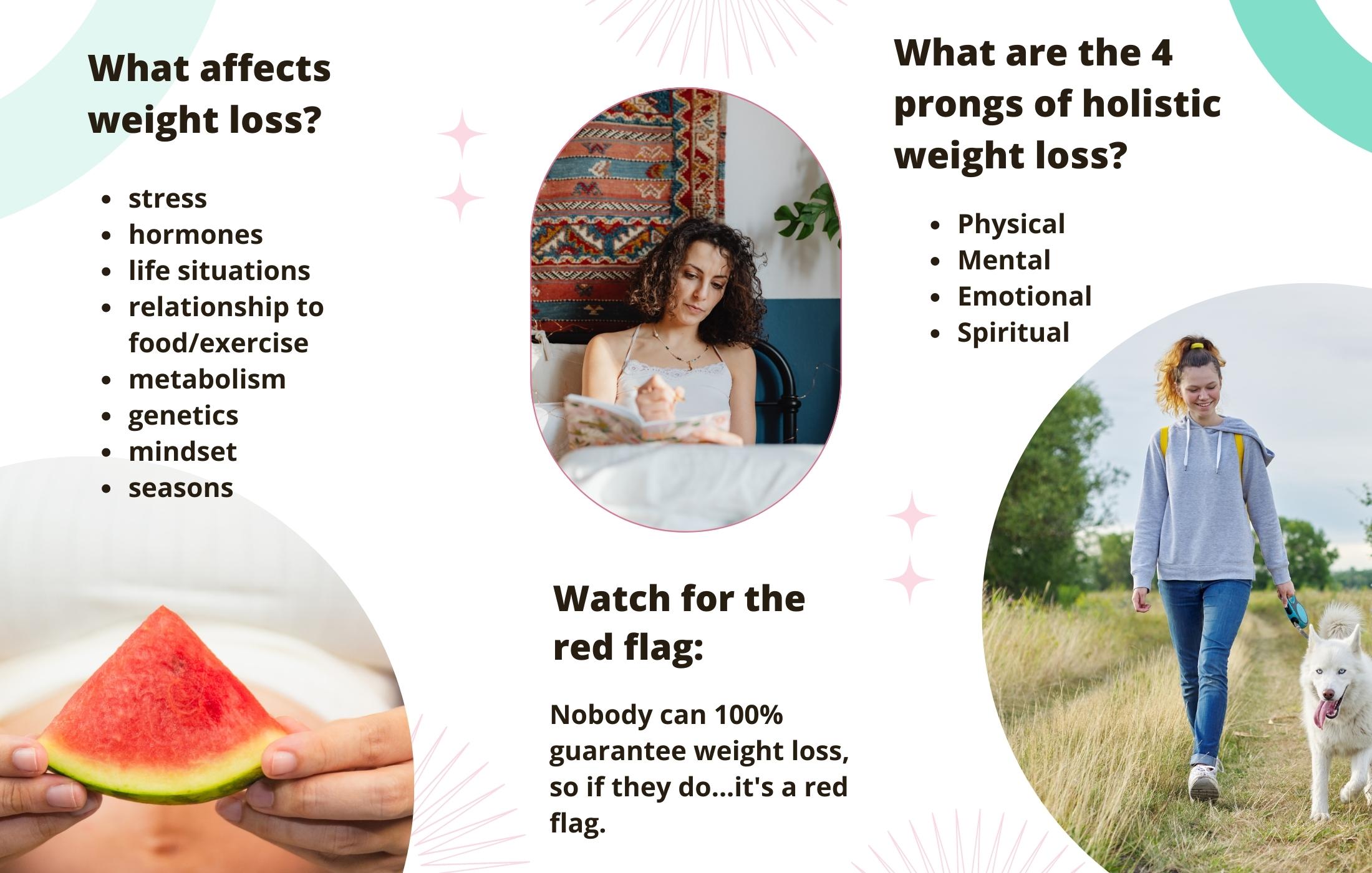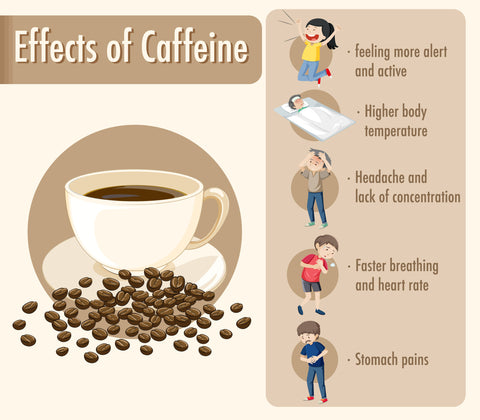Matcha has surged in popularity worldwide. Known for its vibrant green color, distinct flavor, and health benefits, matcha has become a staple in many people's wellness and diet routines.
However, with its popularity come many myths, especially regarding matcha and weight loss. As a relatively new drink on the market, people who aren't in the know can get caught up in the myths surrounding matcha.
In this guide, we will debunk these myths by providing scientific facts and clear evidence on what matcha can and cannot do for your weight loss journey.
Myth 1: Matcha Instantly Burns Fat
The Myth:
One widespread belief is that drinking matcha leads to instant fat loss. The claim suggests that simply incorporating matcha into your diet can rapidly decrease body fat.
Debunking the Myth:
While matcha benefits health and can support weight loss efforts, it is not a magic potion for instant fat reduction.
The primary compound in matcha contributing to weight management is epigallocatechin gallate (EGCG). It is a type of catechin with potential effects on metabolism.
The Proof:
Studies have shown that EGCG can enhance fat oxidation, burning fat for energy.
For instance, a study published in the American Journal of Clinical Nutrition found that consuming EGCG-rich green tea extract can increase fat oxidation by 17% compared to placebo.
However, these moderate effects contribute to weight loss when combined with a healthy diet and regular exercise.

Myth 2: You Can Lose Weight with Matcha Alone, No Diet Change Needed
The Myth:
Another common matcha misconception is that matcha alone can lead to significant weight loss without dietary modifications. It suggests that the tea's properties can counterbalance other dietary choices.
Debunking the Myth:
While matcha is a beneficial addition to any diet, expecting it to be a standalone solution for weight loss is unrealistic. Effective weight management involves a holistic approach, including a balanced diet and regular physical activity.

Source: Jenn Hand
Matcha can enhance these efforts, mainly due to its metabolism-boosting compounds, but it cannot replace the fundamentals of healthy eating.
The Proof:
Nutritionists and dietitians emphasize the importance of a balanced diet for sustainable weight loss. A study in the Journal of Nutrition found that participants who incorporated green tea extract into a comprehensive diet and exercise plan experienced more significant weight loss than those who did not.
This underscores the role of matcha as part of a broader health strategy, not a substitute for one.
Myth 3: More Matcha Equals More Weight Loss
The Myth:
There's a belief that if some matcha is good, more must be better, suggesting that high consumption will linearly correlate with more significant weight loss.
Debunking the Myth:
While matcha contains numerous health benefits, drinking matcha in moderation is key. Overconsumption can lead to adverse effects, such as caffeine-related side effects, including jitteriness, sleep disturbances, or even more severe issues like liver toxicity when consumed in excessive amounts.

Source: Mobopro.com
The Proof:
The recommended daily intake of matcha is about two cups, which provides the benefits without overloading the body with caffeine.
Studies, including one from the European Journal of Clinical Nutrition, indicate that while moderate consumption of matcha can contribute to weight management and overall health, exceeding this can diminish benefits and introduce risks.
Myth 4: Matcha Works the Same for Everyone
The Myth:
Some believe matcha's effects on weight loss are uniform across all individuals, expecting similar results regardless of personal health profiles or lifestyle factors.
Debunking the Myth:
Just like any dietary supplement or health food, matcha's effects can vary from person to person. Factors such as metabolism, existing health conditions, and caffeine sensitivity can influence how one's body reacts to matcha.
The Proof:
Research indicates variability in how individuals metabolize compounds like EGCG. A study published in Obesity Reviews highlighted that genetic differences could affect how people respond to green tea's weight loss benefits.
Thus, while matcha can support weight loss efforts, its effectiveness will inevitably differ among individuals, emphasizing the need for a personalized approach to diet and health.
Conclusion
Throughout this exploration of matcha and weight loss myths, we've seen that while matcha is a powerful addition to a healthy lifestyle, it is not a miracle cure. It can support weight loss efforts, especially with a balanced diet and regular exercise.
However, expectations must be realistic. Moderation and personalization are vital to utilizing matcha effectively.
Matcha should be viewed as one component of a comprehensive approach to health and wellness. Beyond its potential for aiding in weight loss, matcha offers numerous other health benefits, including antioxidant properties and the promotion of mental alertness.
You can enjoy its full benefits by incorporating matcha into a well-rounded, healthy lifestyle.
FAQ: The Truth About Matcha and Weight Loss
How much matcha should I drink daily for weight loss?
While matcha can support weight loss efforts, moderation is key. The recommended daily intake is about two cups. This amount allows you to enjoy matcha's benefits, including its metabolism-boosting effects, without overconsuming caffeine.
Can matcha replace my regular workout routine for weight loss?
No, matcha should not be seen as a replacement for regular physical activity. While it can enhance metabolism and support weight management, the best results are achieved when matcha is combined with a consistent exercise routine.
Is it true that matcha can help burn fat without any dietary changes?
Matcha can support fat oxidation and may contribute to weight loss efforts, but significant results require a balanced diet. No food or drink, including matcha, can compensate for unhealthy eating habits.
Will drinking more matcha lead to faster weight loss?
Drinking matcha in moderation is vital. Excessive consumption does not equate to faster or more significant weight loss and can lead to adverse side effects. It's essential to enjoy matcha as part of a balanced diet.
Why doesn't matcha work the same way for everyone regarding weight loss?
A5: Individual differences in metabolism, caffeine sensitivity, and genetics mean that matcha's effects can vary from person to person. While some may notice benefits in terms of weight management, others might not see the same effects.
TL;DR: Matcha and Weight Loss Myths Debunked
- Matcha doesn't burn fat instantly: While it can enhance metabolism, significant weight loss requires a balanced diet and regular exercise.
- Matcha isn't a standalone weight loss solution: Drinking matcha alone without dietary changes won't lead to significant weight loss.
- More matcha doesn't mean more weight loss: Excessive consumption doesn't increase weight loss benefits and can cause side effects.
- Matcha's effects vary by individual: Due to differences in metabolism and genetics, matcha's impact on weight loss isn't universal.
- Moderation and balance are key: Enjoy up to two cups of matcha daily as part of a balanced diet and active lifestyle for the best weight management results.
As you navigate the health and wellness journey, remember to evaluate the information you encounter critically. Always consult healthcare professionals when implementing new elements into your diet or health regimen.
Let matcha be a vibrant, healthful, and enjoyable part of your life, contributing to your overall well-being in a balanced and informed way.



